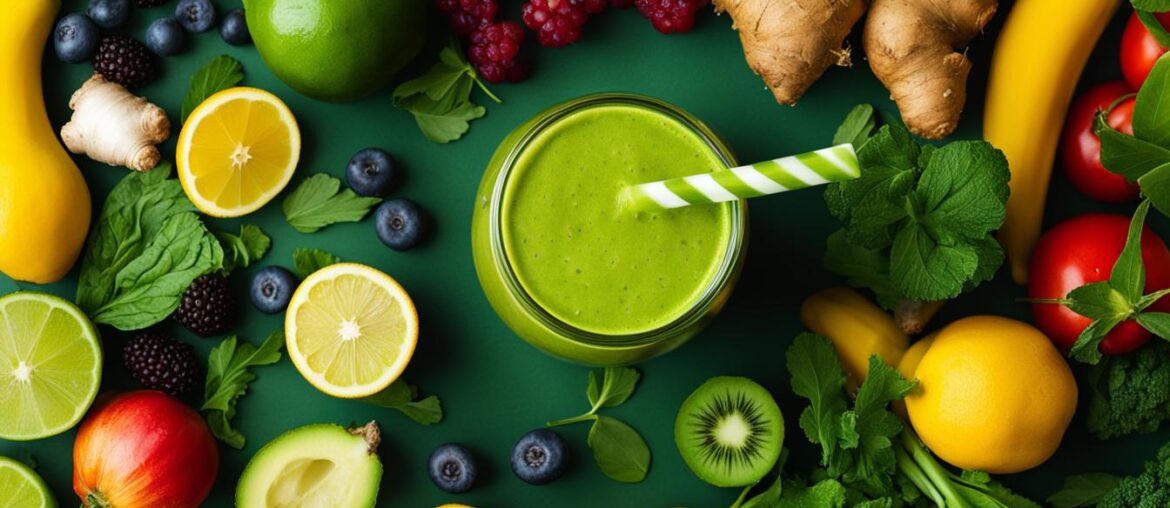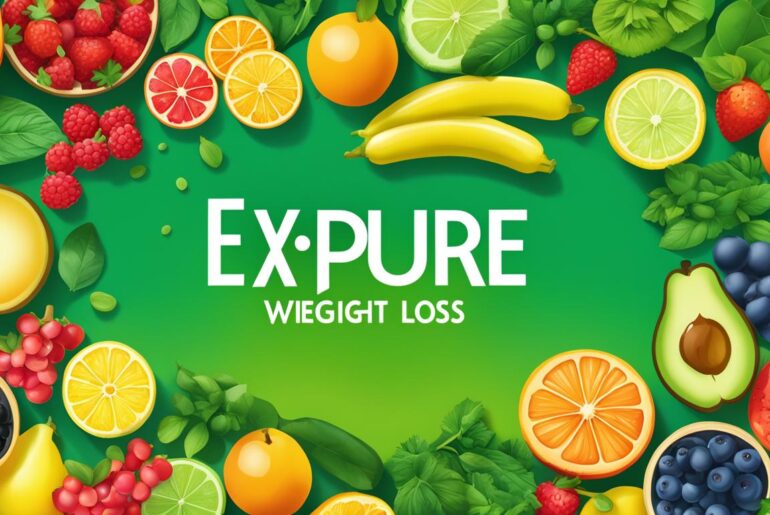Maintaining a healthy body weight is a goal for many individuals, and detox cleanses have emerged as a popular strategy for rapid weight loss. These short-term programs involve specific diet modifications aimed at promoting quick weight loss. While there is no standard definition for a weight loss cleanse, methods can vary, including herbal supplements, exercise, or dietary changes.
At the core of detox cleanses for weight loss is the idea of eliminating toxins from the body. These cleanses can focus on reducing weight overall or targeting specific body areas for fat loss. While some cleanses are effective and provide positive results, it is important to approach them with caution and choose the best option for your needs.
Key Takeaways:
- Detox cleanses for weight loss are short-term programs aimed at promoting rapid weight loss through specific dietary modifications.
- Methods can include herbal supplements, exercise, or dietary changes.
- There is no standard definition for a weight loss cleanse, and the effectiveness can vary.
- Approach weight loss cleanses with caution and choose a program that suits your individual needs.
- Consult with a healthcare professional before starting any cleanse to ensure it is safe for you.
What Is a Weight Loss Cleanse?
A weight loss cleanse is a short-term program that involves drastic dietary changes in order to promote rapid weight loss. There is no standard definition for a weight loss cleanse, but the goal is generally to remove certain foods or lifestyle habits to facilitate weight loss. These cleanses can vary in duration, restrictions, and necessary ingredients.
The Basics of Weight Loss Cleanses
A weight loss cleanse typically involves a strict and specific dietary plan that aims to detoxify the body and shed excess weight. These plans often exclude processed foods, sugar, alcohol, caffeine, and other potential triggers for weight gain. Instead, they focus on nutrient-dense foods such as fruits, vegetables, lean proteins, and whole grains.
The duration of a weight loss cleanse can vary from a few days to several weeks. Some cleanses may also incorporate supplements or detoxifying drinks to enhance the cleansing process. However, it is important to note that the effectiveness and safety of these supplements may vary, and it is advisable to consult with a healthcare professional before starting any cleanse.
Potential Benefits and Considerations
| Potential Benefits | Considerations |
|---|---|
|
|
While weight loss cleanses can offer initial rapid weight loss and help jump-start healthier eating habits, they may not provide sustainable long-term weight loss without accompanying lifestyle changes. It is important to approach weight loss cleanses with caution and consider the potential risks and benefits. Consulting with a healthcare professional is essential to ensure the cleanse is appropriate for individual health and weight loss goals.
Next, let’s explore the differences between cleanse and detox diets to gain a better understanding of these popular approaches to weight loss.
What’s the Difference Between Cleanse and Detox Diets?
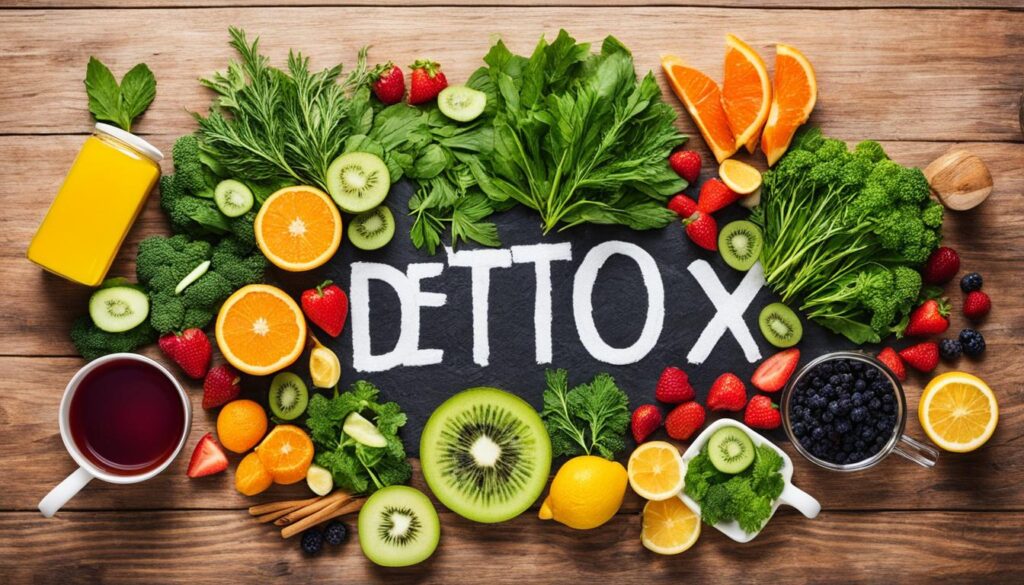
Detox diets and cleanse diets are often used interchangeably, but some people claim there are distinct differences.
Detox diets focus on eliminating toxins from the body and may involve fasting, herbal supplements, and strict dietary regimens. The goal of a detox diet is to remove harmful substances and promote overall health and well-being. This type of diet aims to cleanse the body from the inside out, allowing it to reset and function optimally.
Cleanse diets, on the other hand, prioritize eliminating unhealthy or allergenic foods while replacing them with nutrient-dense options. The focus of a cleanse diet is to improve digestion, boost energy levels, and support weight loss. By removing processed foods and incorporating whole, natural foods, cleanse diets aim to provide the body with essential nutrients and promote overall wellness.
Both detox and cleanse diets are typically short-term and involve dietary modifications. However, detox diets tend to have a more comprehensive approach, targeting a wider range of physical ailments and promoting overall detoxification. Cleanse diets, on the other hand, primarily focus on reducing weight, managing cravings, and improving digestion.
| Detox Diets | Cleanse Diets |
|---|---|
| Focus on eliminating toxins from the body | Emphasize eliminating unhealthy or allergenic foods |
| May involve fasting and herbal supplements | Replace unhealthy foods with nutrient-dense options |
| Aim to target a wider range of physical ailments | Primarily focus on reducing weight and food cravings |
Not All Weight Loss Cleanses Are the Same
When it comes to weight loss cleanses, there is a wide variety of options available. Each cleanse has its own unique set of restrictions, duration, and necessary ingredients. Let’s take a look at some popular examples:
- Whole30 Cleanse
- Juice Cleanses
- The Master Cleanse (Lemonade Diet)
- BeachBody Ultimate Reset
- The 10-Day Green Smoothie Cleanse
These weight loss cleanses can range from liquid-only diets to eliminating specific food groups. They have gained popularity due to their potential effectiveness in promoting quick weight loss. However, it’s important to note that the results may vary for each individual and it’s recommended to consult a healthcare professional before starting any cleanse.
Whole30 Cleanse
The Whole30 cleanse is a popular option that focuses on eliminating certain food groups for 30 days. Participants are required to exclude grains, legumes, dairy, added sugars, and processed foods from their diet. The cleanse aims to reset the body’s relationship with food and promote healthier eating habits.
Juice Cleanses
Another popular type of weight loss cleanse is the juice cleanse. This cleanse involves consuming only freshly squeezed juices made from fruits and vegetables for a certain period of time. Juice cleanses are often marketed as a way to detoxify the body and provide a quick boost of nutrients.
The Master Cleanse (Lemonade Diet)
The Master Cleanse, also known as the Lemonade Diet, gained popularity as a weight loss cleanse. It involves consuming a mixture of lemon juice, maple syrup, cayenne pepper, and water for a specific duration. The cleanse aims to flush out toxins from the body and promote weight loss.
BeachBody Ultimate Reset
The BeachBody Ultimate Reset is a comprehensive 21-day cleanse program that involves eliminating processed foods, added sugars, and caffeine. It focuses on nourishing the body with nutrient-dense foods and gentle exercises to support overall health and well-being.
The 10-Day Green Smoothie Cleanse
The 10-Day Green Smoothie Cleanse is a popular cleanse that revolves around consuming green smoothies made from leafy greens, fruits, and water. Participants are advised to replace their meals with these nutritious smoothies to promote weight loss and detoxification.
It’s important to remember that weight loss cleanses may not be suitable for everyone. It’s essential to choose a cleanse that aligns with your goals, preferences, and overall health condition. Consulting with a healthcare professional is always recommended before starting any weight loss cleanse.
Are They Effective?
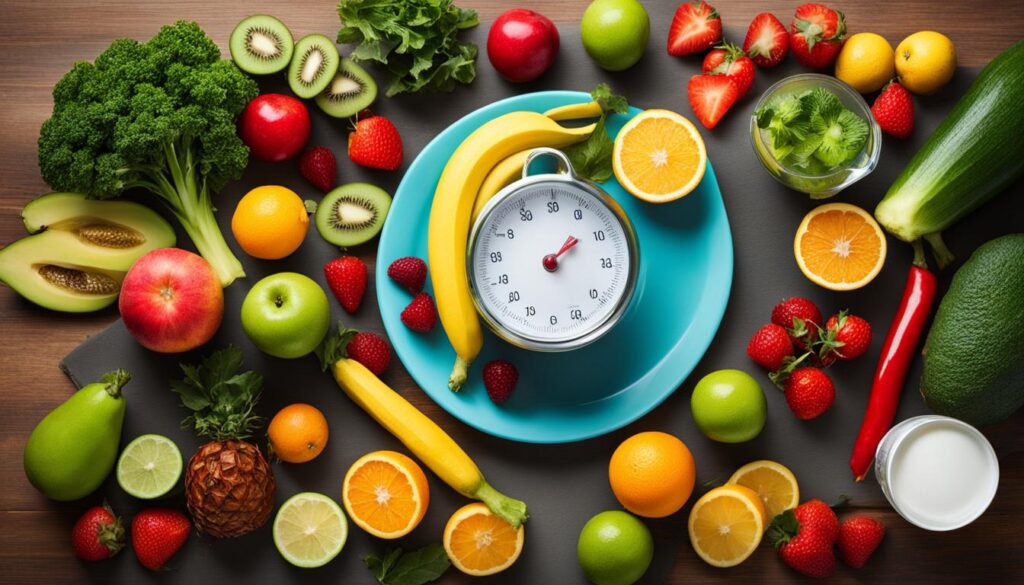
When it comes to the effectiveness of weight loss cleanses, there is limited scientific research available. However, some studies have shed light on the potential outcomes of very-low-calorie diets (VLCDs), which share similarities with certain weight loss cleanses. These VLCDs have been shown to result in significant weight reduction.
VLCDs typically involve closely monitored and nutritionally balanced dietary strategies. They aim to create a calorie deficit by severely restricting daily caloric intake, often below 800 calories. This drastic reduction in calories may lead to rapid weight loss.
While VLCDs have yielded notable results in terms of weight reduction, it is essential to consider the potential drawbacks of weight loss cleanses. Many cleanses exclude vital nutrients by limiting or eliminating certain food groups, which could potentially result in severe nutritional deficiencies. Long-term weight maintenance and overall health require a balanced and healthy eating style.
“Although some weight loss cleanses may lead to rapid weight loss, it is important to assess the long-term sustainability and potential risks associated with such programs.”
Research on weight loss cleanses is still limited, and it is crucial to approach them with caution. Consulting with a healthcare professional before starting a cleanse can provide valuable guidance and help assess the suitability of these programs for individual needs.
The Role of Very-Low-Calorie Diets (VLCDs)
Research on very-low-calorie diets has shown their potential for rapid weight loss, similar to certain weight loss cleanses. These diets involve drastic calorie restriction, typically reducing daily caloric intake to below 800 calories.
VLCDs can lead to significant weight loss, primarily attributed to the calorie deficit created. However, it is essential to note that the weight loss experienced during a VLCD is often not sustainable in the long term without appropriate lifestyle modifications.
“While very-low-calorie diets may show results in the short term, maintaining a healthy weight in the long run requires a comprehensive approach involving balanced nutrition, regular physical activity, and behavioral changes.”
VLCDs should be closely supervised by healthcare professionals to ensure nutritional adequacy and minimize potential health risks.
Concerns about Nutritional Deficiencies
Weight loss cleanses, particularly those that severely restrict food intake, can lead to nutrient deficiencies. By eliminating or limiting certain food groups, these cleanses may exclude essential vitamins, minerals, and macronutrients from the diet.
To achieve and maintain optimal health, it is crucial to consume a balanced diet that includes a variety of nutrient-dense foods. Restrictive cleanses may not provide the necessary nutrients, potentially leading to various health issues and impaired bodily functions.
“The potential for nutritional deficiencies should be carefully considered before embarking on a weight loss cleanse. It is advisable to prioritize a well-rounded, nutrient-dense eating plan.”
Consulting with a registered dietitian or healthcare professional can provide personalized guidance to ensure nutritional needs are met while pursuing weight loss goals.
Do They Offer Any Health Benefits?
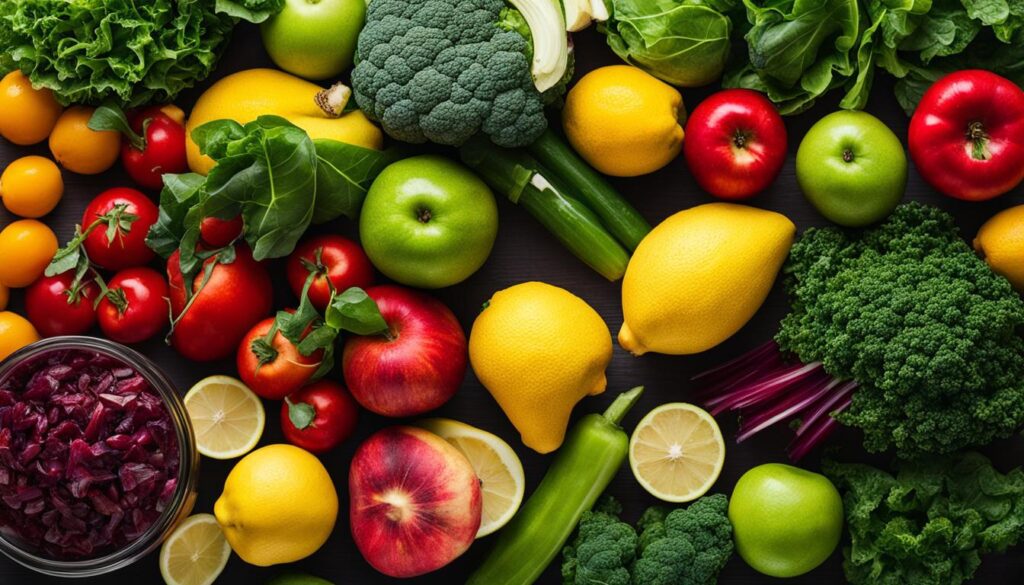
While weight loss cleanses may be popular for their promise of quick results, the evidence supporting their health benefits is limited. Although some studies have observed improvements in blood sugar control and reductions in markers of heart disease risk, it’s important to note that these effects may simply be attributed to weight loss in general and not unique to detox diets.
Achieving and maintaining a healthy weight through balanced eating habits and regular exercise is generally recommended for long-term health. Rather than relying on short-term cleanses, adopting a sustainable lifestyle that includes nutritious meals, physical activity, and adequate hydration can support overall well-being.
It is worth mentioning that weight loss cleanses may not provide the necessary nutrients for optimal health. These cleanses often restrict certain foods, potentially leading to nutrient deficiencies if not properly balanced or supervised by a healthcare professional.
While it may be tempting to seek quick fixes, it’s essential to prioritize long-term health goals and consult with a healthcare professional before starting any weight loss cleanse.
“Weight loss cleanses can sound promising, but the limited scientific research suggests that maintaining a healthy weight through balanced eating habits and regular exercise is the key to long-term health.”
Effects on Blood Sugar Control
Some studies have suggested that weight loss cleanses may have positive effects on blood sugar control. By reducing the intake of processed foods, added sugars, and refined carbohydrates, these cleanses can potentially lead to stabilized blood sugar levels. However, more research is needed to better understand the specific mechanisms and long-term effects of weight loss cleanses on blood sugar control.
Effects on Heart Disease Risk
Preliminary research has shown that weight loss cleanses may result in improvements in certain markers of heart disease risk, such as reduced blood pressure and cholesterol levels. However, these effects are likely associated with weight loss itself rather than the detoxification process. Engaging in regular cardiovascular exercise, consuming a balanced diet, and managing stress are fundamental strategies for reducing the risk of heart disease.
| Health Benefits of Weight Loss Cleanses | Potential Benefits |
|---|---|
| Improved Blood Sugar Control | Weight loss cleanses that restrict processed foods and added sugars may lead to stabilized blood sugar levels. |
| Reduced Heart Disease Risk | Some studies have shown improvements in blood pressure and cholesterol levels, which are associated with a decreased risk of heart disease. |
It’s important to note that these potential health benefits should be considered alongside the risks and safety concerns associated with weight loss cleanses.
There Are Inherent Risks and Safety Concerns

Weight loss cleanses can have potential risks and adverse health effects that individuals should be aware of before starting such programs. Some of the main safety concerns associated with weight loss cleanses include:
- Dehydration: Rapid weight loss achieved through cleanses can lead to dehydration. As the body sheds excess water weight, it is essential to maintain proper hydration levels to avoid complications.
- Gallstones: Drastic changes in diet and rapid weight loss can increase the risk of gallstone formation. Gallstones are hard deposits that can form in the gallbladder and cause pain and other digestive issues.
- Eating Disorders: Weight loss cleanses can have negative psychosocial impacts on individuals with a tendency for eating disorders. These programs may exacerbate disordered eating patterns and promote an unhealthy relationship with food.
- Adverse Health Effects: Certain weight loss cleanses may involve using laxatives, colon cleansing procedures, or enemas, which can have serious side effects. These methods can disrupt the natural balance of the digestive system and lead to complications.
Before starting a weight loss cleanse, it is crucial to consider these potential risks and consult with a healthcare professional. They can provide guidance on whether a cleanse is suitable for an individual’s specific circumstances and help mitigate any potential adverse health effects.
| Risks of Weight Loss Cleanses | Safety Concerns |
|---|---|
| Dehydration | Weight loss cleanses can lead to dehydration as the body sheds excess water weight. It is essential to stay properly hydrated. |
| Gallstones | Drastic changes in diet and rapid weight loss can increase the risk of gallstone formation, leading to pain and digestive issues. |
| Eating Disorders | Weight loss cleanses may have negative psychosocial impacts on individuals with eating disorders, exacerbating disordered eating patterns. |
| Adverse Health Effects | Some cleanses involve laxatives, colon cleansing procedures, or enemas, which can disrupt the digestive system and lead to complications. |
Conclusion
Weight loss cleanses may promise quick results, but the evidence supporting their effectiveness is limited. Many cleanses can be unsafe and may lead to nutritional deficiencies or adverse health effects. Instead, it is important to focus on supporting the body’s natural detoxification processes through safe methods.
To promote long-term weight loss and overall health improvement, I recommend making lifestyle choices that prioritize the body’s natural detoxification. This includes limiting alcohol consumption, reducing sugar and processed foods, staying hydrated, consuming antioxidant-rich foods, and engaging in regular exercise.
By adopting these healthy habits, you can support the body’s natural detoxification mechanisms, which can lead to sustainable weight loss over time. Remember, there is no quick fix or magic solution when it comes to weight loss. It’s all about making sustainable lifestyle changes that support your overall well-being.

